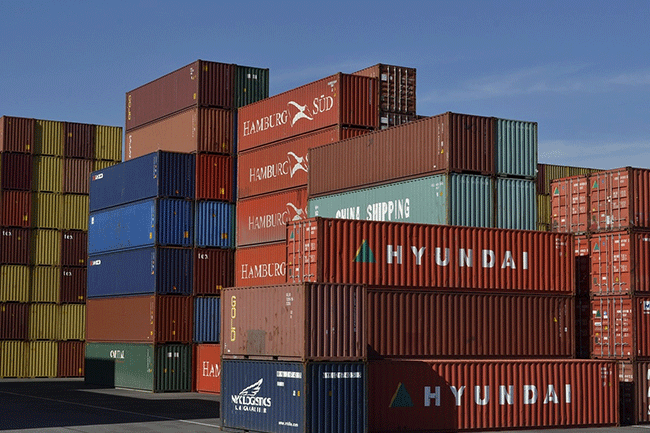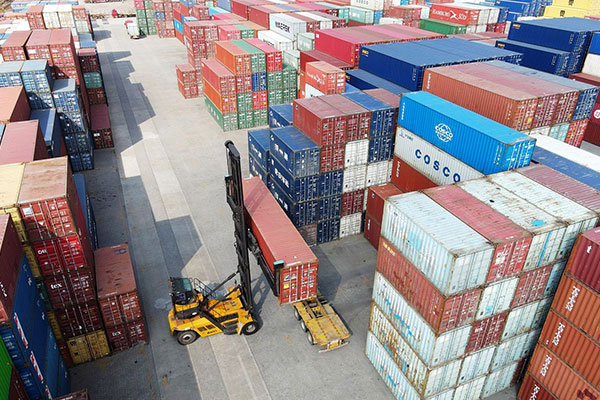- Shanghai Zhongshen International Trading Co., Ltd. – Your reliable partner with 20 years of import/export agency service expertise.

German biscuitImport Customs ClearanceCore Challenges and Agentic Value
In recent years, the volume of Sino-German food trade has continued to expand; in 2023, Germany’s food exports to China rose 12 % year-on-year, with bakery products accounting for more than 30 %. German biscuits, prized for their refined craftsmanship and premium ingredients, have won strong favor among Chinese consumers, yet the import-clearance process—encompassing EU food regulations, China’s market-access requirements, and cross-border logistics coordination—places stringent demands on companies’ professional capabilities.foreign tradeLeveraging expertise in document processing, integrated logistics resources, and policy sensitivity, agents have become a critical support for companies in reducing customs-clearance costs and shortening cycle times.
Document Processing: The "Digital Pass" for Import Customs Clearance
The compliance of documentation for imported German biscuits directly determines customs clearance efficiency. According to the "Regulations on the Registration Administration of Overseas Food Production Enterprises Exporting to China" and the "General Administration of Customs Announcement on the Conformity Assessment of Imported Food", the core documents include:
- Basic commercial documents: Commercial Invoice (must indicate FOB/CIF price terms), Packing List (mark gross weight/net weight/volume),Maritime transportBill of Lading (Ocean B/L or Telex-Release B/L);
- Certificate of Origin and Quality: European UnionOrigin Certificate(EUR.1 format), German official health certificate (issued by certification bodies such as BV, must state “in compliance with EC 1935/2004 on food-contact materials”);
- Technical documents: Ingredient analysis report (with allergen declaration), nutrition facts table (compliant with GB 28050 General Rules for Nutrition Labeling of Prepackaged Foods), registration number of the overseas food manufacturer (must be filed in the “Registration Management System for Overseas Food Manufacturers” of the General Administration of Customs of China).
Our documentation team has over 10 years of experience in reviewing food-related certificates and provides end-to-end services: up-front vetting of supplier documents for completeness (e.g., verifying that health certificates bear the seal of the German Federal Institute for Risk Assessment, BfR), mid-stage translation and format standardization (converting German paperwork into the Chinese-English bilingual versions required by customs), and post-stage filing for future audits (retaining document copies for more than three years to respond to customs inspections). In 2022, we helped a client avert a return-to-sender risk caused by an ingredient list that failed to declare “contains gluten,” directly saving RMB 800,000.
Logistics Management: End-to-End Control from the Port of Hamburg to Chinese Warehouses
German biscuits are mostly shipped by full-container load (FCL) or less-than-container load (LCL); the following logistics nodes require close attention:
- Port of Origin Operations: Coordinate Hamburg port booking (prioritize Maersk, CMA CGM and other main carriers on the China-Europe route), supervise the container-loading process (avoid mixing with odorous cargo; for reefer containers, maintain a constant 20–25 °C).
- In-transit monitoring: Obtain real-time temperature and humidity data of containers through logistics tracking systems (such as Maersk Remote Container Management), and trigger an alert within 1 hour in case of anomalies;
- Customs Clearance at the Port of Destination: Complete the exchange of documents 3 days in advance (obtain the Delivery Order D/O with the telex-release guarantee or the original B/L), coordinate customs inspection (if selected, provide pre-classification service—German biscuits usually fall under HS codes 1905.31 (wafers) or 1905.32 (sweet biscuits), ensuring accurate classification to avoid tariff discrepancies);
- Domestic distribution: In partnership with JD Logistics, Sinotrans, and others, we provide a door-to-door “port–warehouse–store” service, supporting bonded warehouse storage (for phased sales if needed) or direct delivery to distributors.
In 2023, a client’s 1,200 cartons of German Black Forest cookies faced a supermarket-slot breach due to a delayed sailing schedule. By securing Shanghai Port’s green lane, we cleared customs within 24 hours and arranged expedited trucking, achieving on-time delivery and a 98 % client-satisfaction score.
Expansion of business with Russia: VTBConvert foreign exchange into RMBAdvantages Facilitate Cross-Border Settlement
Some companies purchase German biscuits through Russian re-export or in partnership with Russian traders, making foreign-exchange settlement efficiency the critical factor. Our company has built a long-term relationship with VTB Bank and offers three key advantages:
- Exchange Rate Lock - in: Supports spot/forward settlement to hedge against exchange-rate volatility in multi-currency conversions among RUB, EUR, and CNY;
- Arrival time: Via the dual channels of CIPS (Cross-Border Interbank Payment System) and SPFS (Russian Financial Messaging System), the settlement cycle is shortened to 1–2 working days (traditional correspondent banking takes 3–5 days);
- Compliance guarantee: Strictly align the customs declaration, contract, and invoice to ensure the “three-documents consistency,” meeting the cross-border payment facilitation requirements set out in the Joint Statement of the People’s Republic of China and the Russian Federation on Deepening the Comprehensive Strategic Partnership of Coordination for the New Era. In Q3 2023, assisted a client in completing a €20 million re-export settlement to Russia without a single document being rejected by banks for discrepancies.
Compliance and Risk: Essential Pre-Import Preparations
Under the current international trade climate, two key compliance points must be prioritized when importing German biscuits:
- EU Export Restrictions: Starting in 2024, the EU’s New Battery Regulation will extend to food packaging; any packaging bearing a recyclable symbol must include a recycling plan;
- China Access Upgrade: Customs has intensified the “double random” inspections of imported food (randomly selecting both enterprises and consignments); in 2023, the food inspection rate rose 25 % year-on-year, with priority given to verifying microbiological indicators (e.g., total plate count) and additive usage (e.g., whether sunset yellow complies with GB 2760).
Please note: the company must complete product certification on its own (e.g., BRC Global Food Safety Standard, IFS International Featured Standard). We can provide a list of certification requirements and FAQs, but we do not handle certification directly. It is recommended to confirm certification validity with the German supplier six months in advance to avoid customs clearance delays due to expired certification.
Full-process agency service: 9 key checkpoints ensure a closed business loop
Our company willImport Agent ServicesBroken down into 9 key nodes, covering the full cycle from consultation to delivery:
- Client Consultation: Clarify the scope of service through a requirements survey form (covering 20 items including product composition, packaging format, target market, etc.);
- Negotiation and Contract Signing: Review key contract clauses (e.g., return liability for non-conforming quality, allocation of demurrage charges); recommend inserting a flexible clause stating “additional costs arising from policy changes shall be borne by both parties through negotiation”;
- Orders & Payment: Recommend payment methods based on cargo value (T/T advised for amounts under USD 5 million, L/C at sight recommended for USD 5 million and above), and assist in issuing?L/C?(LC) and examine the consistency of documents with the terms of the letter of credit;
- Production supervision: Commission third-party organizations such as SGS to station at the factory for supervision, focusing on verifying raw-material traceability (e.g., whether the flour comes from a non-GMO region) and the production environment (whether cleanliness meets ISO 14644-1 Class 8);
- Logistics Management: Develop multi-scenario shipping plans (e.g., the Cape of Good Hope route as a backup in case of Suez Canal congestion) and provide insurance advice (recommend CIC All-Risks to cover total loss during transit);
- Customs Compliance: Pre-declare HS codes (submitted through the customs advance ruling system), calculate the comprehensive tax rate (10% customs duty + 13% VAT; some preferential-treaty rates allow 0% duty), and pay duties on your behalf (supports consolidated duty payment to reduce capital occupation);
- Delivery and Distribution: Provide bonded warehousing (tax-deferred) or direct delivery according to customer needs, and support "drop-shipping" to e-commerce platforms;
- Quality Assurance: Sampling and inspection (conducted by Pony Testing, an institution recognized by the General Administration of Customs of China), issuance of inspection reports, and assistance in handling quality issues (such as negotiating returns or price reductions);
- Summary Feedback: Provide the "Import Customs Clearance Analysis Report" (including timeliness, costs, and statistics on abnormal issues), complete the final payment settlement, and file the documents.
Industry Trends and Client Recommendations
Two major trends characterized German biscuit imports in 2024: first, a shift toward healthier options (demand for low-sugar and gluten-free products rose 30%), and second, smaller but more frequent batches (e-commerce channels drove a 40% drop in average shipment size). Recommendations for companies:
- Plan imports three months in advance and keep an eye on EU seasonal policies (e.g., Christmas limited editions require early application for special-label filing);
- Maintain weekly communication with the agent to promptly sync on market-demand changes (e.g., a sudden live-streaming sales order that requires adjusting logistics priority);
- Establish a tiered supplier management system (Category A suppliers must provide annual audit reports, while Category B suppliers undergo enhanced ex-factory inspections).
Through professional document handling, precise logistics control, and an in-depth grasp of regulations, foreign-trade agents are becoming German biscuit importers’ “compliance escort” and “efficiency accelerator.” Choosing an agent with full-process service capabilities allows companies to focus on market expansion and achieve sustainable growth in their import operations.
? 2025. All Rights Reserved.










